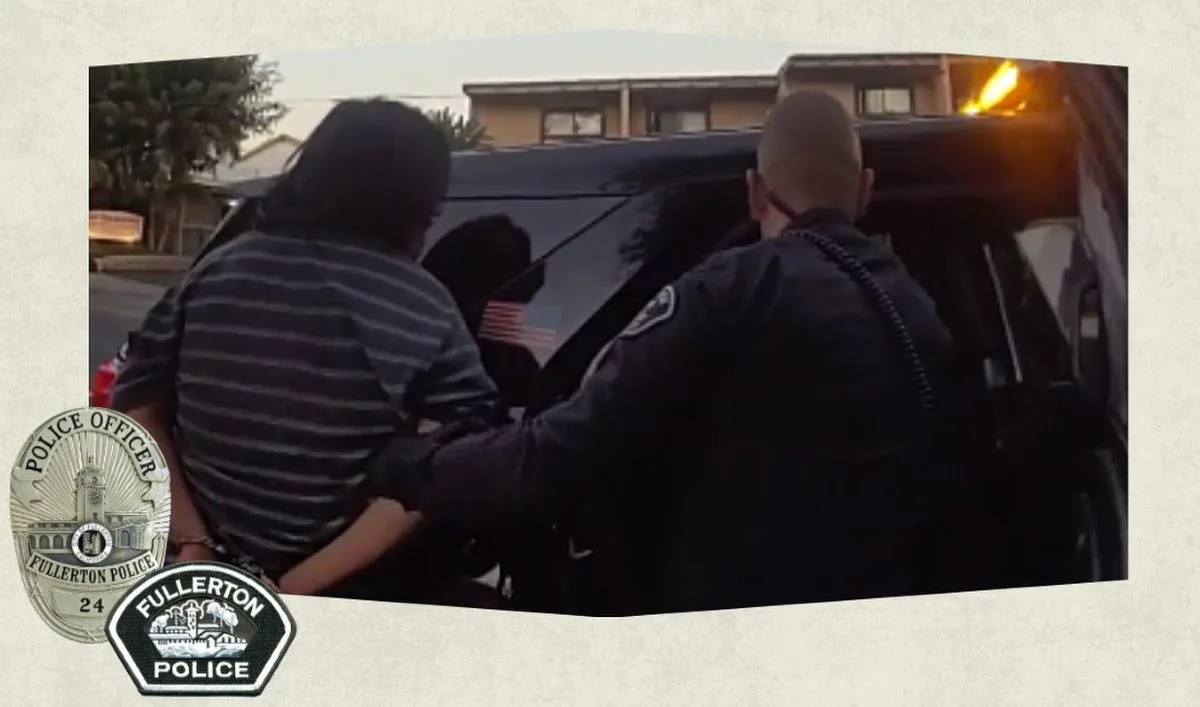Over the weekend, a resident near Bastanchury & Associated found a suspect in their backyard during a residential burglary, according to the Fullerton Police Department.
The suspect took off running, but the police officers quickly responded and tracked him down nearby.
Turns out, the suspect was still carrying property from the home.
The items were returned to the victim, and the suspect was booked for residential burglary and a parole violation.
The suspect was a burly fellow with long dark hair. He was wearing a dark shirt with gray stripes.
Here’s a summary of the penalties the suspect may face and how this could affect his job prospects:
Legal Penalties for Residential Burglary and Parole Violation in California
Residential Burglary (First-Degree Burglary):
- Classified as a felony under California Penal Code §459.
- Penalties include:
- 2, 4, or 6 years in state prison.
- A fine up to $10,000.
- Possible felony probation, but only if mitigating circumstances exist.
- Counts as a “strike” offense under California’s Three Strikes Law, which can lead to harsher penalties for future convictions.
Parole Violation:
- If the suspect was already on parole, violating it by committing a new felony can result in:
- Revocation of parole.
- Additional prison time, often served consecutively with the new sentence.
- Reduced chances of early release or parole in the future.
Impact on Employment Prospects
A felony conviction—especially for burglary—can significantly affect job opportunities:
General Challenges:
- Most employers conduct background checks and may be hesitant to hire someone with a felony record.
- Jobs in healthcare, education, finance, law enforcement, and government often disqualify applicants with certain convictions.
Legal Protections in California:
- Ban the Box Law: Employers cannot ask about criminal history on initial job applications.
- Employers must wait until after a conditional job offer to inquire about convictions and must conduct an individualized assessment before rejecting a candidate.
Options for Rehabilitation:
- Expungement: May be available after completing probation, allowing the person to legally say they haven’t been convicted in many situations.
- Record Sealing: Applies to arrests not leading to convictions or certain juvenile offenses.
- Certificates of Rehabilitation: Can help with licensing boards and show personal growth.
Improving Job Prospects:
- Participation in rehabilitation programs, education, and community service can demonstrate character development.
- Character references and a clean record post-conviction can help rebuild trust with potential employers.

